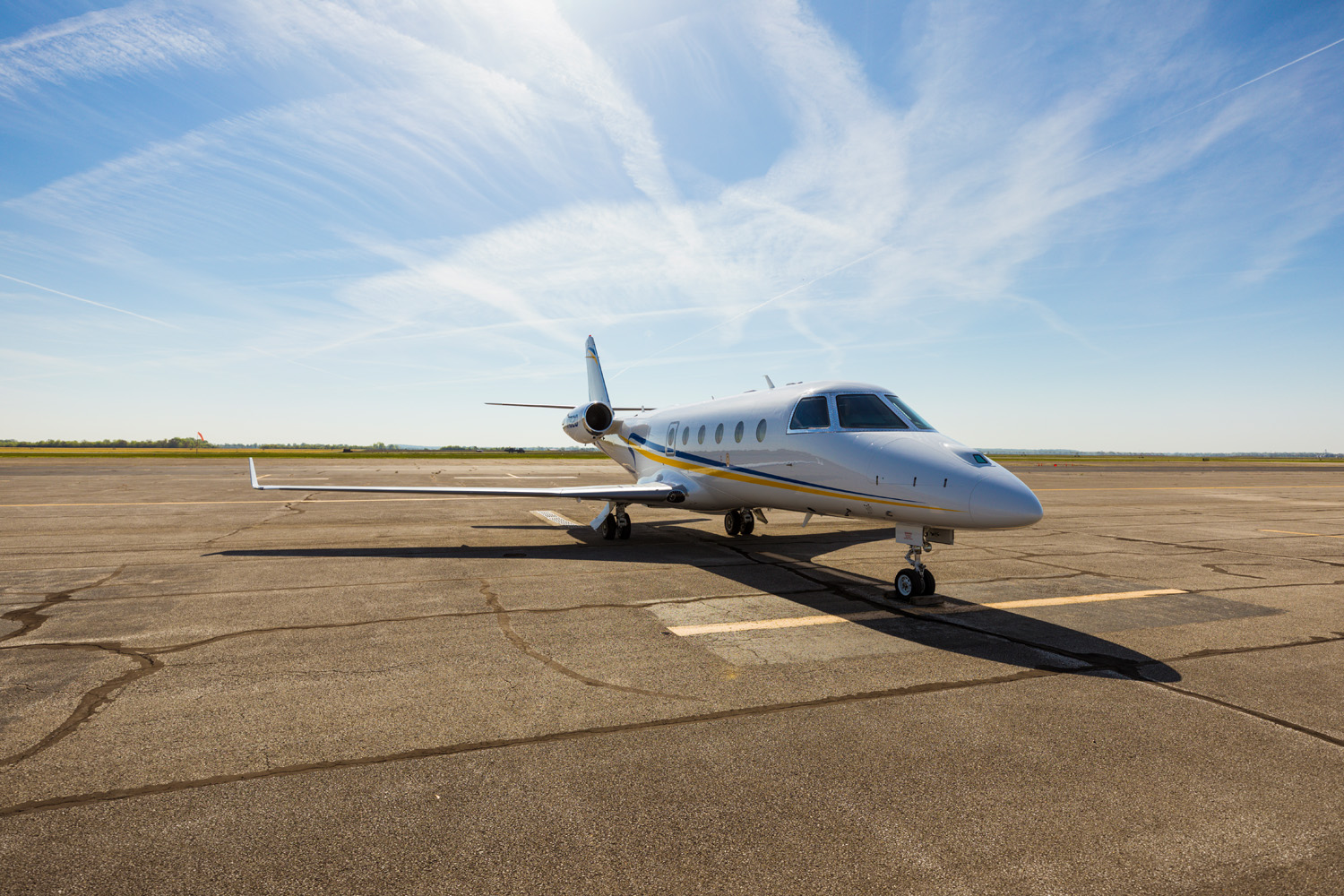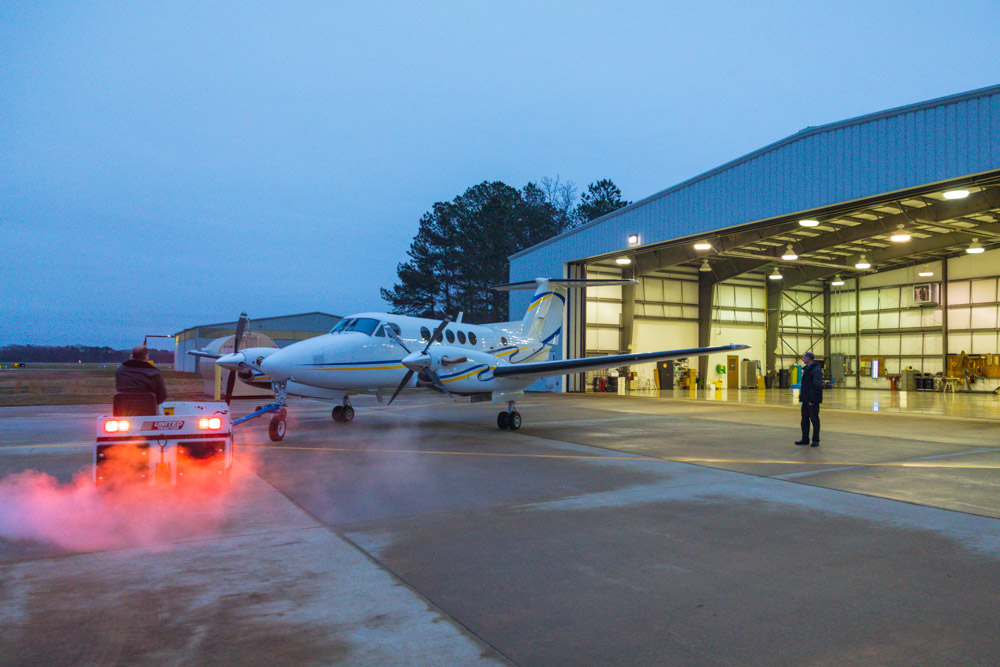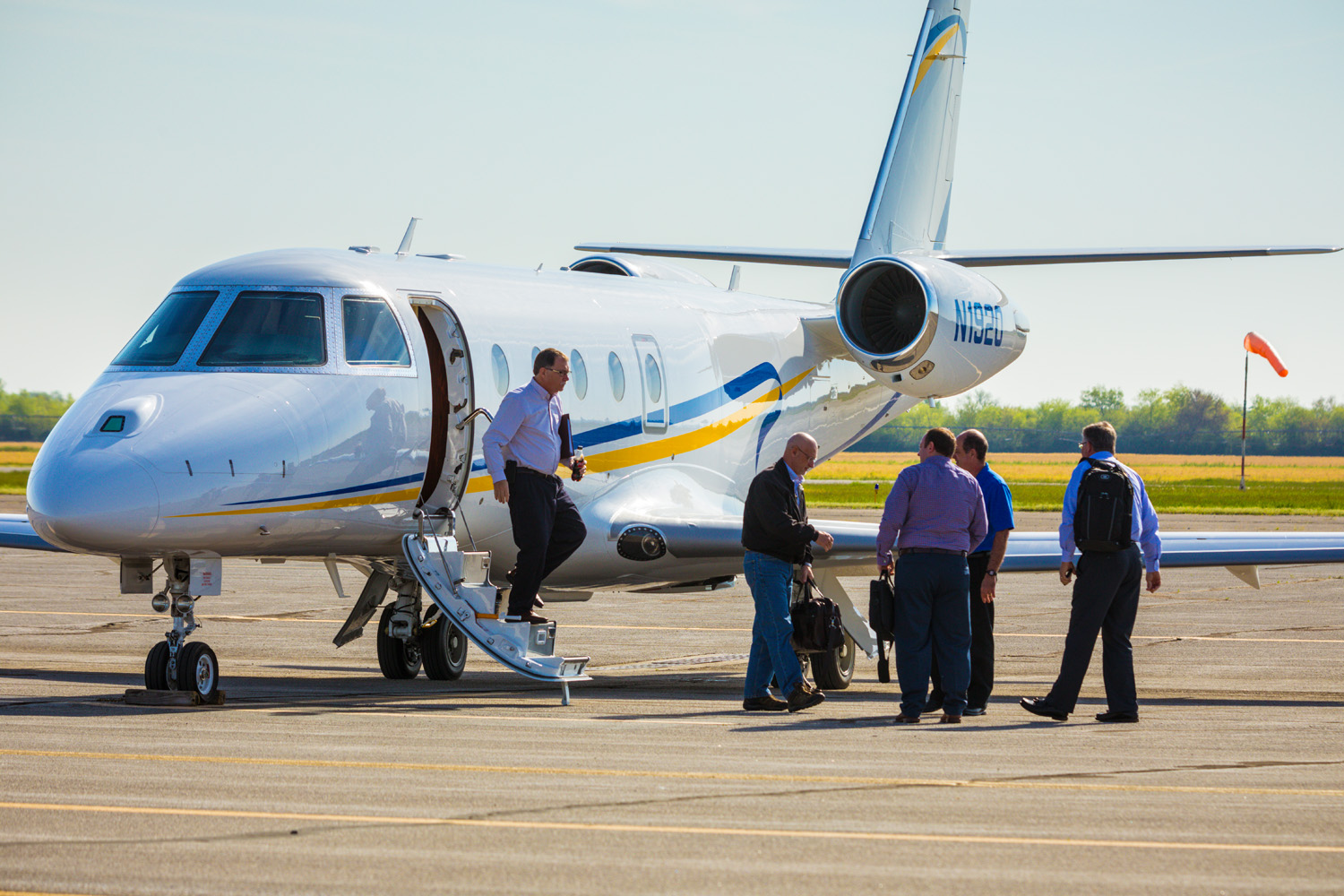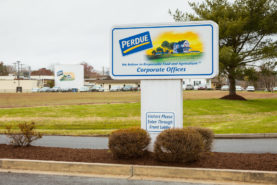
Perdue Farms, a leading poultry producer, uses business aircraft to enhance profitability and productivity.
Aug. 26, 2018
How can you run a $6 billion business if none of your nearly two-dozen facilities are near a major commercial airport? That’s a common challenge in the agriculture industry – one that could stifle growth without access to business aviation.
“Most chicken plants are not built around major metropolitan areas,” said Clayton Pauze, senior captain for Perdue Farms. “The purpose of the aircraft has always been to further the profitability and productivity of the company. To go out and back to our facilities in the same day, versus having to possibly take three days driving or on an airline, is vital.”
Perdue’s headquarters are across the highway from the Salisbury, MD farm-house where Arthur and Pearl Perdue started out almost 100 years ago. From that small flock of chickens in 1920, Perdue has grown to be a top poultry producer, expanded into turkey and pork, and become a global supplier of grain.
Today, Arthur and Pearl’s grandson, Jim Perdue, serves as chairman. The company is still family owned – and still very cost-conscious.
Perdue operates a King Air B200 and a Gulfstream G150 out of Salisbury Regional Airport (SBY), which is surrounded by Chesapeake Bay farmland. Airline service is limited to a handful of daily flights to Philadelphia, PA and Charlotte, NC. Still, when Perdue associates are traveling solo to the Midwest or the West Coast, they will make the hub-and-spoke airline connections necessary to get to their destinations. For almost all other missions, the business aircraft are valuable time-savers.
“Probably a thousand folks – or more – at Perdue have flown on the airplanes,” said Lester Gray, vice president of operations. “Virtually every department uses the planes, including sales, marketing, operations, IT, Perdue AgriBusiness, our executives and more. They travel to many of our facilities and customers. The planes allow us to be much more efficient in managing our business”
Usually, more than half the seats in both aircraft are filled, often by personnel from several different departments. An accountant may schedule a plant review, and a team from production will hop on.

WESTWARD EXPANSION
From 1998 to 2005, Perdue only operated one aircraft, a Beechjet 400A. By 2005, the company was flying the Beechjet more than 450 hours a year and needed to expand the flight department by adding another pilot.
“To keep the Beechjet in the air, we needed a third crewmember,” said Flight Department Manager and Chief Pilot Paul Bradham, who has been flying alongside Pauze since 1999. “The same year, Perdue’s management decided we needed two airplanes: one for shorter missions and one for longer missions. That’s when we bought the King Air.”
The King Air mostly flies up and down the Eastern Seaboard, flying north to Boston for customer visits and south to Perdue’s largest facility in Perry, GA. The jet travels to farms and plants in Indiana, Iowa, Kentucky and Tennessee.
To be able to conduct flights on both aircraft simultaneously, Perdue hired a fourth pilot. Bradham’s goal is to cover all flight needs with internal resources, but Perdue uses charter for supplemental lift about 20 hours per year.
In 2011, Perdue acquired CA-based Coleman Natural Foods, making Perdue the world’s largest producer of organic chicken. Other acquisitions added more facilities on the West Coast. That year, Perdue sold the Beechjet, replacing it with a Gulfstream G150.
“We bought the Gulfstream because our mission changed,” said Bradham. “With Perdue’s acquisitions on the West Coast, we needed a longer-range aircraft.”

SAFETY AND ECONOMY
Even as it expanded and became a global exporter of meat and grain, Perdue stayed rooted in the values of quality and integrity, shunning ostentation. Nearly every associate in the company’s headquarters works out of a cubicle, including Chairman Jim Perdue.
That sense of economy is reflected in the flight department, a comparatively small operation with only five staff members (four pilots and a scheduler). Perdue does not have an in-house maintenance team, and the pilots perform many duties that would normally be done by technicians.
“We fuel and wash the airplanes, tow them out [of the hangar], put them back in and do the post-flight inspections,” said Pauze. “We do it all.”
The King Air is covered by Textron’s maintenance program, and the pilots take it to service centers in Greensboro, NC or Newburgh, NY for scheduled inspections. They take the Gulfstream to the OEM’s facility in Savannah, GA and Duncan Aviation in Battle Creek, MI. Perdue also has a contract with Air Repair in Easton, MD. A technician from that company drives to Salisbury each week, primarily to check the jet. These service arrangements enable the flight department to be as flexible as it can without a maintenance department.

RECRUITING AND RETENTION
Operating so economically makes the flight department valuable to Perdue, but it’s not always easy, especially in the midst of a national pilot shortage. After experiencing some turnover during the years when the flight department was expanding, Bradham made the case to Perdue’s leadership to offer regionally competitive compensation.
“The airlines are our biggest competitor [for talent], and they’re offering big signing bonuses,” said Bradham. “That makes it critical to network with flight department managers at similar companies and talk about how we’re dealing with it. That, and having accurate and complete salary data, are important.”
When talking with company leader-ship, “my go-to resource has always been the NBAA Compensation Survey,” said Bradham. “Our HR department recognizes it as a reliable authority. You can point to the numbers compiled in it and see where you are – and where you need to be.”
With the data in hand, and a competitive pay scale, Bradham recognizes that business aviation needs to compete in ways other than salary. He emphasizes professional development for his pilots. In the near future, he will send the newest hire, Jeff James, to get his type rating on the Gulfstream.
“It’s about a two-year learning curve for Jeff to fly in the right seat of the Gulfstream,” said Bradham. “It’s not just about building hours. It’s also about experience in the world of business aviation, professionalism and decision-making. Safety is about knowing everything you can about your trip, being familiar with weather, the air traffic control system and the facilities so you can react positively in the environment.”

SNAPSHOT
Aircraft:
One Gulfstream G150 and one King Air B200
Base:
Salisbury (MD) Regional Airport (SBY)
Personnel:
Four pilots (including a flight department manager who flies) and one scheduler


 International Business Aviation Council Ltd.
International Business Aviation Council Ltd.